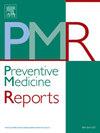COVID - 19大流行期间法国医院工作人员和教师情绪调节大型电子学习项目Tipi®的评估
IF 2.4
3区 医学
Q2 PUBLIC, ENVIRONMENTAL & OCCUPATIONAL HEALTH
引用次数: 0
摘要
目的:Tipi®方法是一种快速情绪调节技术,专注于与情绪相关的身体感觉,使感觉和情绪自然消退。本研究旨在评估基于Tipi®方法的电子学习计划在减少COVID - 19大流行期间医疗保健专业人员和教师的压力和负面情绪方面的有效性。方法本前瞻性观察性研究于2020年和2021年在线进行。该方案向法国82 000名医院工作人员和84 000名教师(一家互助保险公司的成员)提供。它由两个模块组成,有在线评估。主要结果是压力水平的变化(0-10分),从基线到三个月。结果2648人报名参加,456人完成评估问卷。一个月随访率为47%,三个月随访率为31%。第一个模块的完成率为76%,两个模块的完成率均为19%。压力和情绪在1个月和3个月时显著下降,在10分制中值降低1分,在人群水平上被认为具有临床意义。在1个月(p < 0.01)和3个月(p < 0.01)应激下降14%。一个月后焦虑减少14% (p < 0.01),三个月后焦虑减少17% (p < 0.01)。在练习Tipi®方法的患者中观察到更大的改善。满意度中等(在线学习,7/10)。Tipi®方法6/10)。结论Tipi®在线学习计划在减少医院工作人员和教师的压力和负面情绪方面具有可行性、可接受性和有效性。本文章由计算机程序翻译,如有差异,请以英文原文为准。
Evaluation of a large-scale E-learning program on emotional regulation Tipi® for hospital workers and teachers in France during the COVID−19 pandemic
Objective
The Tipi® method is a rapid emotional regulation technique, focusing on physical sensations associated with an emotion, allowing both the sensations and the emotion to subside naturally. This study aimed to evaluate the effectiveness of an e-learning program on the Tipi® method in reducing stress and negative emotions among healthcare professionals and teachers during the COVID−19 pandemic.
Methods
This prospective observational study was conducted online in 2020 and 2021. The program was offered to 82,000 hospital workers and 84,000 teachers in France (members of a mutual insurance company). It consisted of two modules, with online assessments. The primary outcome was the change in stress level (on a 0–10 scale), from baseline to three months.
Results
2648 individuals registered for the program, and 456 completed the assessment questionnaire. Follow-up rates were 47 % at one month and 31 % at three months. The first module was completed by 76 % and 19 % completed both. Stress and emotions significantly decreased at one month and three months, with a median reduction of one point on a 10-point scale, considered clinically meaningful at population level. Stress decreased by 14 % at one month (p < 0.01) and three months (p < 0.01). Anxiety reductions were 14 % at one month (p < 0.01) and 17 % at three months (p < 0.01). Greater improvements were observed in those who practiced the Tipi® method. Satisfaction was moderate (e-learning, 7/10. Tipi® method 6/10).
Conclusions
The Tipi® e-learning program showed feasibility, acceptability, and effectiveness in reducing stress and negative emotions among hospital workers and teachers.
求助全文
通过发布文献求助,成功后即可免费获取论文全文。
去求助
来源期刊

Preventive Medicine Reports
Medicine-Public Health, Environmental and Occupational Health
CiteScore
3.90
自引率
0.00%
发文量
353
 求助内容:
求助内容: 应助结果提醒方式:
应助结果提醒方式:


